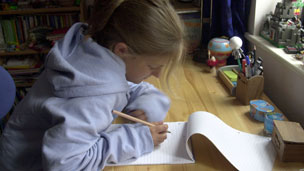Vocabulary: education 詞匯: 教育

What lessons can other countries learn from South Korea and Finland?
Whenever anyone measures educational success, East Asian countries are always top scorers. But in a recent league table, a European country, Finland, was top of the class. South Korea was still in second place, though. Britain was at number 6. What is the secret of Finland and South Korea's success? Time to do some homework.
In Korea the school day is long - typically 7 or 8 hours, followed by hours of private tutoring in the evenings. All this hothousing leaves Korean students so tired, they sometimes fall asleep in class next day. Worries about the effects of late night cramming led the government to force cramming schools to close by 10pm.
收聽(tīng)與下載
Finnish children spend the least time in class in the developed world, often finishing just after lunch, with about one hour of homework a day. Private tuition is uncommon. The British school day is quite long in comparison, around 6 hours, and secondary school pupils do 2 or 3 hours of self-study a night.
The Korean education system, like many in Asia, is intensely competitive, with students even competing to get into the best cramming schools, to help them get ahead. Finnish education is far less cut-throat. Classes are all mixed ability, and there are no league tables. British schools again occupy the middle ground, with quite high levels of competition for places at university, and schools and universities battling to come top of league tables for everything from exam results to student satisfaction.
Korea and Finland both do well, yet their education systems are so different. So what lessons can Britain learn from these two swots?
Well, there are some similarities in Asia and Finland. In those countries, teachers have high status in society, and education is very highly valued. Those attitudes can't change quickly. But it can be done. They might be the star pupil now, but until the 1970s, Finland's educational system was poor. Their radically different approach to schooling has taken them to the top in just a generation.
Glossary 詞匯表 (點(diǎn)擊單詞收聽(tīng)發(fā)音)
- top scorers得高分者
- league table(學(xué)校)排名榜
- top of the class位居榜首
- private tutoring私人課外輔導(dǎo)
- hothousing溫室強(qiáng)化式的拔苗助長(zhǎng),超前的
- cramming填鴨式(教育)
- private tuition私人補(bǔ)習(xí)
- self-study自學(xué)
- intensely competitive競(jìng)爭(zhēng)激烈的
- get ahead取得進(jìn)步
- cut-throat殘酷的
- mixed ability(學(xué)生)水平參差不齊的
- occupy the middle ground取中
- battling掙扎
- student satisfaction學(xué)生滿意度
- swots勤奮刻苦的人(國(guó)家)
- high status高(社會(huì))地位
- attitudes態(tài)度
- star pupil優(yōu)秀生
- radically different approach截然不同的方法
- schooling學(xué)校教育
- generation一代人
關(guān)注和訂閱












